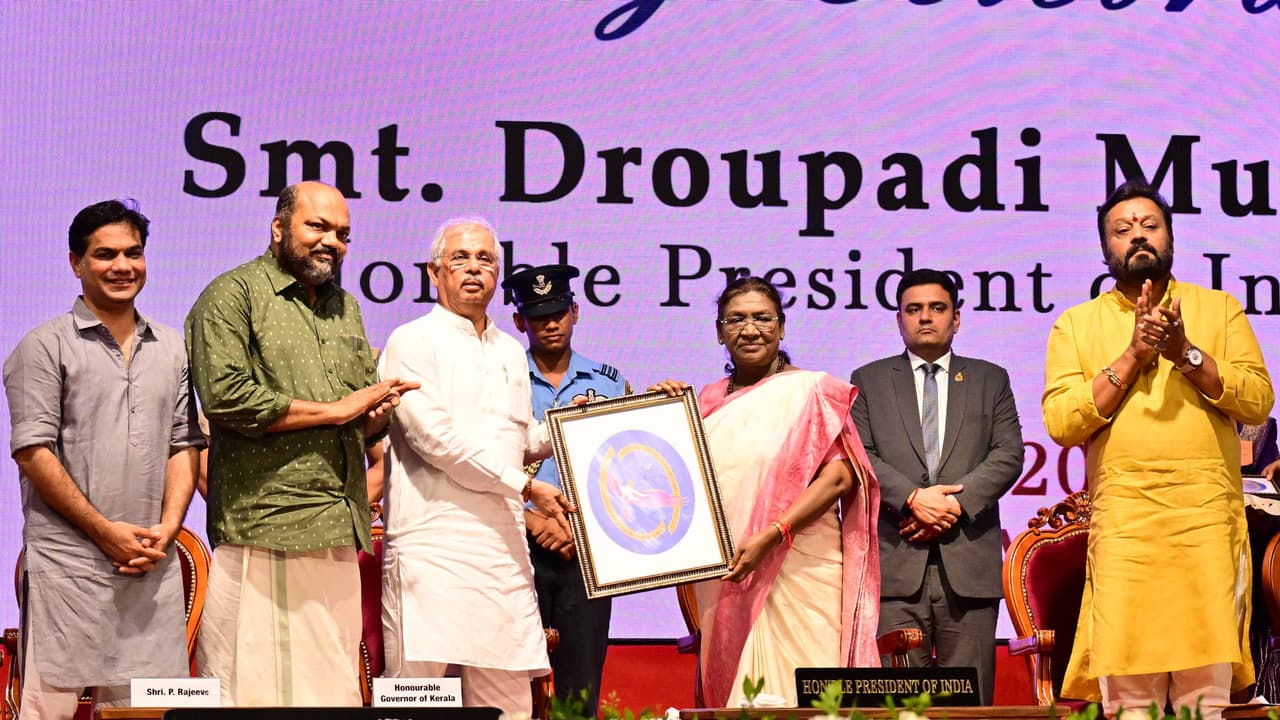President Droupadi Murmu praised the National Education Policy’s vision to make India a global knowledge hub during St. Teresa’s College centenary in Kochi. Her remarks came as Kerala signed the PM SHRI scheme amid CPI opposition.
Kochi: Amid growing debate over the PM SHRI scheme, President Droupadi Murmu lauded the National Education Policy (NEP) for its transformative vision, saying it aims to make India a global powerhouse in the field of knowledge. The President made these remarks during the centenary celebrations of St. Teresa’s College in Kochi, Kerala, where she unveiled the institution’s centenary logo alongside Governor Rajendra Arlekar. Addressing the gathering, President Murmu commended St. Teresa’s College for its century-long dedication to women’s education and its role in shaping generations of socially responsible citizens. She emphasized that institutions like St. Teresa’s have been instrumental in advancing social transformation through a strong commitment to spiritual and educational values.
Highlighting Kerala’s rich legacy of women leaders, the President recalled that three of the fifteen women members of India’s Constituent Assembly, Ammu Swaminathan, Annie Mascarene, and Dakshayani Velayudhan, were from the state. She also noted the trailblazing achievements of Justice Anna Chandy, India’s first woman High Court judge, and Justice M. Fathima Beevi, the first woman to serve on the Supreme Court.
Applauding the college’s SLATE (Sustainability, Leadership and Agency through Education), the President said it reflects the NEP 2020’s spirit of linking higher education with sustainability goals and future-ready skills. She expressed confidence that institutions like St. Teresa’s College will continue to drive India’s emergence as a knowledge superpower. The comments come at a time when PM SHRI scheme has been constantly criticised over its potential to enable centralisation of educational governance.
Why Is It Significant?
Kerala’s decision to sign the PM SHRI (Prime Minister Schools for Rising India) scheme marks a major political turning point, as it comes despite strong opposition from the Communist Party of India (CPI), a key ally in the ruling Left Democratic Front. The memorandum of understanding, signed between the Centre and the state government, ensures the release of nearly Rs 1,500 crore in previously withheld Samagra Shiksha Kerala (SSK) funds.
While the move paves the way for over 260 schools in Kerala to benefit from the centrally sponsored programme, it has ignited tensions within the coalition. The CPI has accused the government of bypassing cabinet consensus and compromising on federal principles, warning of possible disciplinary action. The development underscores the growing friction between state autonomy and central influence in education policy, with Kerala’s participation signaling both a financial necessity and an ideological compromise.
